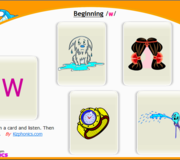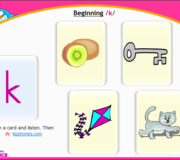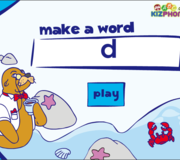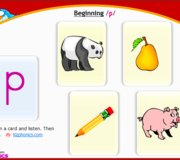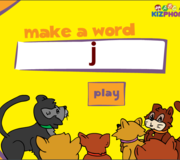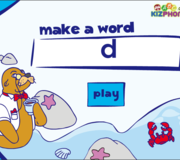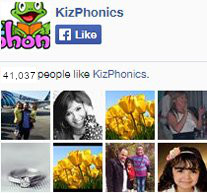Short /a/ sound, Phonics game to practice the short /a/ sound
The short vowel sound /a/ as in /cat/ or /apple/ is very prevalent in English words. Thus, it deserves a game of its own. This phonics game helps kids master the short vowel sound /a/ as in the word cat. But don’t stop there, other short vowel sounds are equally important in the formation of many English words. Learning to read words with the short /a/ is the best first step in blending letters to read short words.
Unlock the Joy of Reading with Short A Vowel Words for Kids
Teaching children the basics of phonics is a crucial step in their educational journey. One of the most foundational sounds in English phonics is the short a sound. It is essential to master short a words to build strong literacy skills. This article aims to be your comprehensive guide to teaching and understanding the short sound of a, offering tips, benefits, and interactive ways to make learning engaging and effective.
Table of Contents
Why Short A Words are Essential
The Science of Short A Sound
Activities to Reinforce Short Sound A
Interactive Tools for Learning Short A Sound
FAQs
Why Short A Words are Essential
The short sound of a is often one of the first vowel sounds that children learn. Mastering this sound has several benefits for young learners, which are worth understanding and exploring.
Building Phonemic Awareness
Phonemic awareness is the ability to identify and manipulate individual sounds in spoken words. Learning short a words can help children to break down words into their component sounds, which is a critical skill in becoming proficient in reading and writing.
A Gateway to More Complex Words
Once a child masters short a words like 'cat,' 'bat,' and 'mat,' they are better equipped to tackle more complex vocabulary. The short sound a serves as a foundational element in English phonics, making it easier to understand word families and patterns.
Boosting Confidence and Motivation
Successfully learning to recognize and use short a words can provide a significant confidence boost for children. This success is likely to motivate them to continue their learning journey with enthusiasm.
The Science of Short A Sound
Understanding the science behind the short sound of a can add another layer of interest to your teaching methods. It can help both educators and parents understand the importance of this basic sound in the realm of phonics.
Frequency in the English Language
The short sound of a is remarkably frequent in the English language, appearing in a plethora of everyday words. This makes it invaluable for early literacy development.
Neural Connections
Learning the short a sound helps in strengthening neural connections that are vital for language comprehension and production. The brain recognizes the sound, connects it to the letter 'a,' and associates it with meaning, facilitating quicker word recognition in the future.
Activities to Reinforce Short Sound A
There are numerous activities you can utilize to reinforce the short a sound effectively.
Short A Bingo
Create a Bingo card filled with short a words and have children mark off the words as you call them out. This game not only makes learning fun but also helps in reinforcing the short a sound.
Word Family Charts
Use word family charts focusing on short a words like ""-at"" or ""-an"" to help children identify patterns in spelling and pronunciation.
Reading Short A Stories
Reading stories that focus on the short a sound can help in reinforcing this basic phonics principle. This aids in word recognition and reading fluency.
Interactive Tools for Learning Short A Sound
Interactive tools can make learning the short a sound even more engaging. Here is a resource worth checking out:
Online Short A Games
Interactive games can be a fun way to learn. You can find excellent games focused on short a sound here.
FAQs
Why are short a words important for children?
Short a words are fundamental in building phonemic awareness and serve as a gateway to learning more complex words.
How can I make learning short a sound engaging?
Using interactive games, reading stories focused on short a, and playing games like Bingo can make the learning process more engaging.
What age is appropriate for learning short a words?
While children as young as 3 or 4 can begin learning short a sounds, the ideal age may vary depending on the child's developmental readiness.
Where can I find interactive games for short a sound?
You can find interactive phonics games focusing on short a here.
How frequently does the short sound of a appear in the English language?
The short sound a is quite frequent in the English language, making it a vital sound to master for anyone learning to read and write in English.
In conclusion, learning short a words and understanding the short sound of a is crucial in the early stages of literacy development. It builds the foundation for more complex word recognition, boosts confidence, and enhances neural connections that are pivotal for language comprehension. Teachers and parents can use a variety of methods, from interactive games to reading exercises, to make learning this fundamental sound both effective and enjoyable. Start the fascinating journey into the world of short a sound with your child today!

